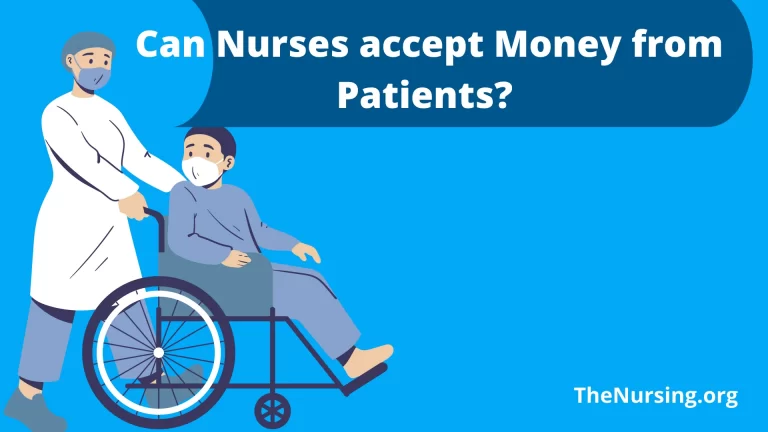Do you have a passion for nursing, but you’re concerned about your low GPA and how it might affect your chances of getting into nursing school? Well! Don’t worry at all! While a low GPA can present challenges, it does not necessarily mean the end of your nursing dreams.
In this article, we will explore strategies and practical tips on how to get into nursing school with a low GPA.
So, let’s dive in and discover how you can overcome this hurdle and pursue your passion for nursing!
Table of Contents
How to Get into Nursing School with a Low GPA
Follow these steps if you have low GPA and looking for the guide on how to get into nursing school with a low GPA:
Research Nursing Programs with Flexible Admission Criteria:
When dealing with a low GPA, it’s essential to research nursing programs that have more flexible admission criteria. Look for schools that consider factors beyond GPA, such as work experience, personal statements, letters of recommendation, and entrance exams.
These programs value a holistic approach to admissions, allowing you to showcase your potential beyond your academic performance.
Strengthen Other Aspects of Your Application:
While your GPA may be lower than desired, you can compensate by strengthening other aspects of your application. Focus on crafting a compelling personal statement that highlights your passion for nursing, your commitment to the profession, and any relevant experiences or challenges you have overcome.
Additionally, secure strong letters of recommendation that speak to your character, work ethic, and dedication to becoming a nurse. By showcasing your strengths in these areas, you can demonstrate your potential despite a low GPA.
Address Your Low GPA in Your Personal Statement:
Take the opportunity to address your low GPA directly in your personal statement. Explain any extenuating circumstances that may have affected your academic performance and how you have learned and grown from those experiences.
Furthermore, emphasize your determination, perseverance, and your unwavering commitment to succeeding in nursing school. Admissions committees appreciate honesty and self-reflection, and this can work in your favor.
Retake Courses or Pursue Post-Baccalaureate Studies:
Consider retaking specific courses in which you received a low grade to demonstrate your academic improvement. Some nursing programs may allow you to replace a previous grade with a higher one.
Alternatively, you could pursue post-baccalaureate studies to show your dedication to academic success. These additional courses can help raise your GPA and provide evidence of your ability to handle the rigor of nursing school.
Boost Your Standardized Test Scores:
Scoring well on standardized tests can significantly strengthen your application, especially if your GPA is low. Focus on preparing for entrance exams such as the Test of Essential Academic Skills (TEAS) or the Health Education Systems, Inc. Admission Assessment (HESI A2).
Invest time and effort in studying, utilizing study guides, practice tests, and preparatory courses to improve your scores. A high score can demonstrate your academic potential and help mitigate the impact of a low GPA.
Gain Relevant Healthcare Experience:
One way to showcase your commitment to nursing and compensate for a low GPA is by gaining relevant healthcare experience. Seek opportunities to work or volunteer in healthcare settings such as hospitals, clinics, or nursing homes.
This hands-on experience demonstrates your dedication to the field, your understanding of the nursing profession, and your ability to contribute to patient care. Admissions committees value practical experience and appreciate candidates who have a real-world understanding of nursing.
Seek Guidance and Support:
When you are searching against how to get into nursing school with a low GPA and When faced with a low GPA, seeking guidance and support can be invaluable. Connect with academic advisors, nursing school representatives, or mentors who can provide insights and advice tailored to your situation.
They can guide you towards nursing programs that may be more accommodating, offer suggestions for improving your application, and help you navigate the admissions process. Their expertise and support can make a significant difference in your journey to nursing school.
Conclusion:
Getting into nursing school with a low GPA may present challenges, but it is not an insurmountable obstacle. Therefore, by conducting thorough research, strengthening other aspects of your application, addressing your low GPA honestly, retaking courses or pursuing additional studies, boosting your standardized test scores, gaining relevant healthcare experience, and seeking guidance and support, you can increase your chances of admission into nursing school.
Remember, a low GPA does not completely define your potential as a nurse as your strong clinical nursing skills are also important. Focus on showcasing your passion, dedication, and determination to succeed in the field. With perseverance and a well-rounded application, you can overcome the limitations of a low GPA and embark on a fulfilling nursing career. So, don’t let your GPA hold you back—take proactive steps towards your nursing dreams and embrace the possibilities that lie ahead. I hope this guide on how to get into nursing school with a low GPA helped you in finding most of your answers.












I truly appreciate your piece of work, Great post.